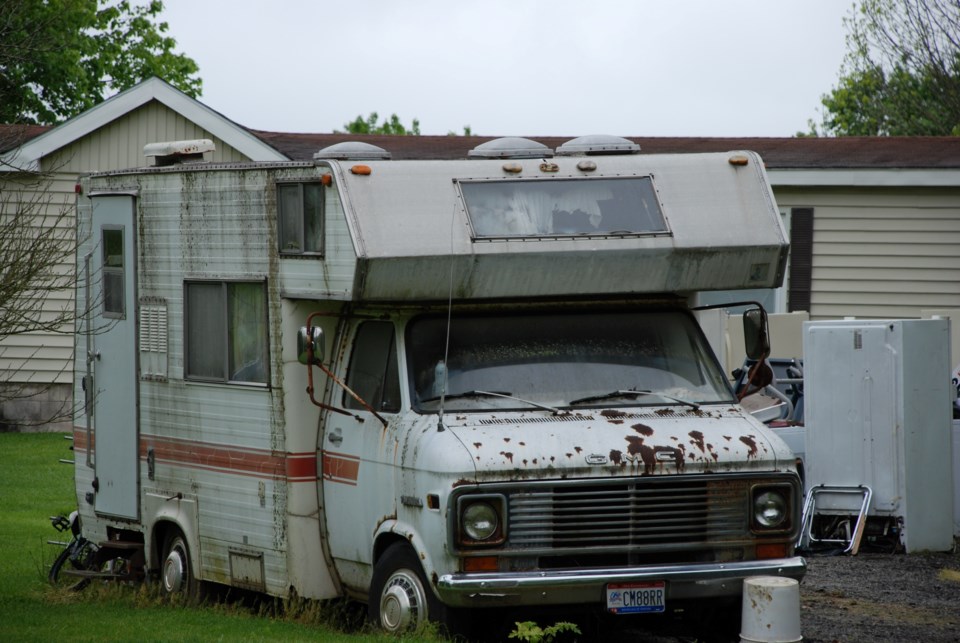The city of Longmont wants to ban all recreation vehicles from public streets to head off a growing problem of people discarding junked RVs on neighborhood streets and letting raw sewage and other toxic wastes from the vehicles escape into the water supply.
The city this year has already spent $55,000 to tow and demolish 17 RVs, compared to 18 for a 10-month period in 2019. The budget for RV disposal is drained, even though another $50,000 is needed for the rest of the year, according to a city report.
“This effort is not financially sustainable,” the report said. “The funds used toward this effort could be better spent on housing assistance.”
Longmont City Council will weigh the proposed ordinance at a Tuesday night work session, which also will likely include a discussion of using RVs to tackle homelessness in Longmont.
If the council eventually votes for the ordinance, Longmont would follow the lead of several surrounding communities with a similar ban. Such moves have cut complaints and had a “positive” impact, according to the city report.
The new ordinance would allow permits to be issued for RV owners for stays of up to seven days on public property, for a maximum of four permits a year, the city staff said. The existing ordinance requires RVs to move at least 600 feet every 48 hours.
Police and code enforcement officers are finding that RV users are simply moving their vehicles the required distance but are still living on public property without a proper way to dispose of human waste, according to the city report.
More people also are living in RVs that are not suitable for habitation and are accompanied by piles of trash and hazardous debris on public streets, the city stated.
“Not only does this contribute to improper disposal of sewage, but also contributes to other hazardous fluids flowing into our storm drainage system that contaminate our water supply,” according to the city report.
Longmont nonprofit Homeless Outreach Providing Encouragement, or HOPE, began a SafeLot program in mid-June, which allows eight designated parking spaces for homeless people to live in their cars overnight in a local church parking lot.
Residents who use the SafeLot program don’t feel safe using an overnight shelter and are working to transition to regular housing, said Joseph Zanovitch, executive director of HOPE.
However, HOPE is not considering starting a lot for RV’s, according to the city report.
“Most people who live in their RVs already consider themselves living in their home,” Zanovitich said last month. “They aren’t that interested in moving to another situation.”
The city said Longmont could examine allowing RVs to park on city property for a fee. “However, the costs are not within reach for many folks we encounter living on public property,” the report stated.
It costs up to $50 a night for a 2008 or newer RV to occupy a private site near Longmont, the city stated. Some sites charge up to $850 a month without utilities and also require a deposit, according to the city report.



